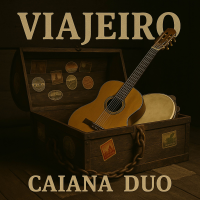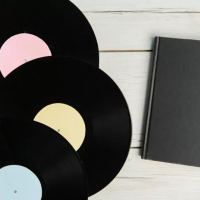Home » Jazz Articles » Charlie Haden
Jazz Articles about Charlie Haden
Alan Shorter: Mephistopholes to Orgasm Revisited

by Stefano Merighi
In questo CD dedicato ad Alan Shorter (tromba, flicorno, composizione) si ripropongono le sedute integrali di Orgasm (1968), precedute perЁ° da “Mephistopheles," di tre anni precedente, che figurava nella scaletta di The All Seeing Eye, del piЁҙ celebre fratello Wayne. ? un pezzo di una cupezza angosciante, sostenuto da un pedale ritmico minaccioso, dalle cui spire fioriscono severi interventi dei fiati e delle percussioni. Con i due fratelli Shorter, suonano James Spaulding (alto), Freddie Hubbard (tromba), Grachan Moncur III (trombone), ...
Continue ReadingNew Releases And Haden On Black Saint & Soul Note

by Bob Osborne
On this edition of World of Jazz, alongside a great selection of new releases, there is a look back at the excellent five album box set which comprises all of the recordings Charlie Haden made for Black Saint and Soul Note record labels.Playlist Show Intro 00:00 Brad Mccarthy's Cannon Fodder “Fun" from Live at JMI (4000 Records) 00:29 Believers--Brad Shepik, Sam Minaie , John Hadfield “Rocinante" from Hard Believer (Shifting Paradigm Records) 08:34 The Ostara Project “Dreams and ...
Continue ReadingOrnette Coleman: Free Jazz to Ornette! Revisited

by Alberto Bazzurro
Che cosa si puЁ° dire ancora di un'opera che ha stravolto il corso del jazz, uno di quegli snodi dopo i quali--qui fin dal titolo--nulla puЁ° essere piЁҙ come prima? Punti di svolta decisivi e ineludibili che cambiano il corso di un'arte, pietre miliari come Les Demoiselles d'Avignon in pittura, l'Ulysses di Joyce in letteratura, o piЁҙ specificatamente in poesia Un coup de dЁҰs di MallarmЁҰ? Nulla, appunto, perchЁҰ tutto dev'essere per forza di cose giЁӨ stato detto e scritto, ...
Continue ReadingOrnette Coleman: Free Jazz To Ornette! Revisited

by John Eyles
For ezz-thetics' revisited series' fourth Ornette Coleman album, the label has ventured back further than any of its previous Coleman albums, to New York City in December 1960 and January 1961. Recorded at A&R Studios on Wednesday December 21st 1960 from 8pm to 12.30am, the Free Jazz session produced two pieces, the thirty-seven minute “Free Jazz" itself, which was issued in September 1961 on an Atlantic album entitled Free Jazz: A Collective Improvisation By The Ornette Coleman Double Quartet, and ...
Continue ReadingAlan Shorter: Mephistopholes To Orgasm Revisited

by Chris May
It is often said of a musician, be they alive or no longer with us, that they deserve to be better known. This is emphatically true of the wayward trumpeter and composer Alan Shorter, who was overshadowed during his lifetime by his brother, Wayne Shorter, and who continues to be passed over today in 2024. Some responsibility for his obscurity lies with Alan Shorter himself. Known as Doc Strange to his teenage schoolmates in Newark, New Jersey, ...
Continue ReadingOrnette Coleman: Ornette At 12, Crisis To Man On The Moon, Revisited

by John Eyles
The re-release albums on Ezz-thetics, by jazz legends from the 1940s, '50s and '60s, have been widely praised, particularly for their sound quality which is invariably much improved compared to the originals or later rereleases. Another impressive aspect of these re-releases is the behind-the-scenes detective work which has tracked down rarities by some iconic musicians. One notable example of this is the three previously unreleased live recordings by the Albert Ayler Quintet, from their autumn 1966 European tour, which appeared ...
Continue ReadingArchie Shepp: Fire Music To Mama Too Tight Revisited

by Chris May
In 2022, it is widely accepted that, when free jazz (aka the New Thing) was in its ascent in New York in the 1960s, there was, despite superficial appearances, no fundamental incompatibility between it and the historical jazz tradition. More contentiously, revisionist historians are now suggesting that there was no real conflict between New Thing and changes-based or modal-based musicians either. They should try telling that to Archie Shepp. In autumn 1966, during the Miles Davis quintet's ...
Continue Reading

 Buy Now
Buy Now


















